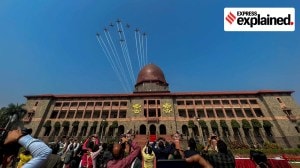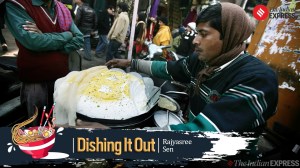Exporters misusing DEPB scheme
MUMBAI, Mar 22: Exporters have come out strongly against the rampant misuse of the duty entitlement passbook scheme DEPB which has been...

MUMBAI, Mar 22: Exporters have come out strongly against the rampant misuse of the duty entitlement passbook scheme DEPB which has been in vogue for the past two years. There has been a revenue leakage of around Rs 3,000 crore under the scheme as exporters have been making a fast buck on bogus exports.
Trade sources said export consignments worth nearly Rs 900 crore are stuck in Dubai alone following an enquiry by various government agencies. As various items get duty relief of 5 to 22 per cent under the DEPB scheme, exporters have been over-invoicing goods particularly garments, dyes and watches and claiming duty relief under the scheme. 8220;Instead of the country getting money through exports, the government ends up paying huge subsidies to exporters under various schemes like DEPB,8221; said an exporter.
8220;Of course, genuine exporters are also claiming DEPB benefits, but there are more bogus claims. The government should scrap this scheme in the new export-import policy which will be announced inApril,8221; said a member of FIEO, adding, 8220;if government agencies like DRI or Customs investigate some of the DEPB claims made by exporters, they can detect a big fraud.8221; 8220;Often when an exporter send a shirt abroad, he manages to get a DEPB relief which is much above the cost of the shirt. This should not be the case,8221; exporters said. The DEPB scheme which replaced the old Passbook scheme for select exporters was modified last year by neutralising the 5 customs duty in the DEPB rates. So far, DEPB rates for more than 2,000 items have been notified by the DGFT. These rates are applicable to all the export items for which input-output and value addition norms have been prescribed. The duty credit under the scheme shall be calculated by taking into account the deemed import content of export products as per standard input-output norms.
The value addition achieved by export products shall also be taken into account while determining the rate of duty credit under the scheme. Under the scheme, an exportershall be eligible to claim credit as a percentage of FoB value of exports made in freely convertible currency.
According to a FIEO member, it can be negotiated with the state government to either give a quot;set-offquot; against total revenue they collect by way of DEPB or SIL special import licence and collection of sales tax thereon vis-a-vis refund of sales tax and octroi duty under the above scheme.
Alternatively in case the state government do not agree, then the Central government should issue quot;parallel currency notesquot; in the denomination of Rs 1000, 10,000, one lakh and 10 lakh in lieu of DEPB which should be valid only for payment of customs duty. Such currency notes will boost the image of the government and these currency notes are only payable against import for customs duty in the beginning and later on, can be extended.
- 01
- 02
- 03
- 04
- 05































